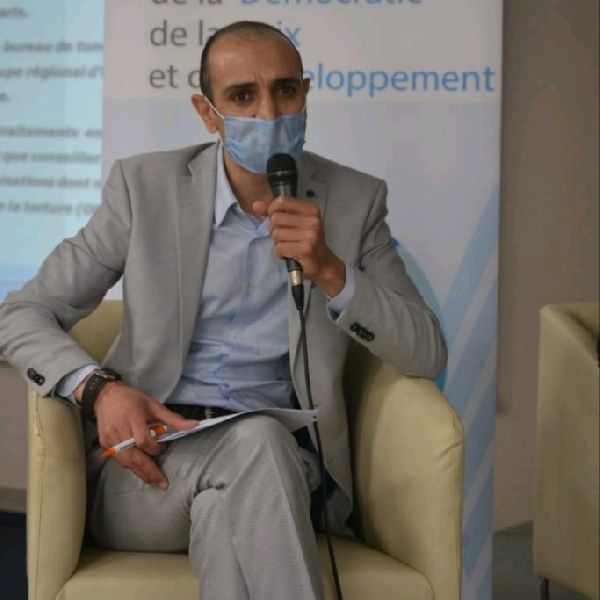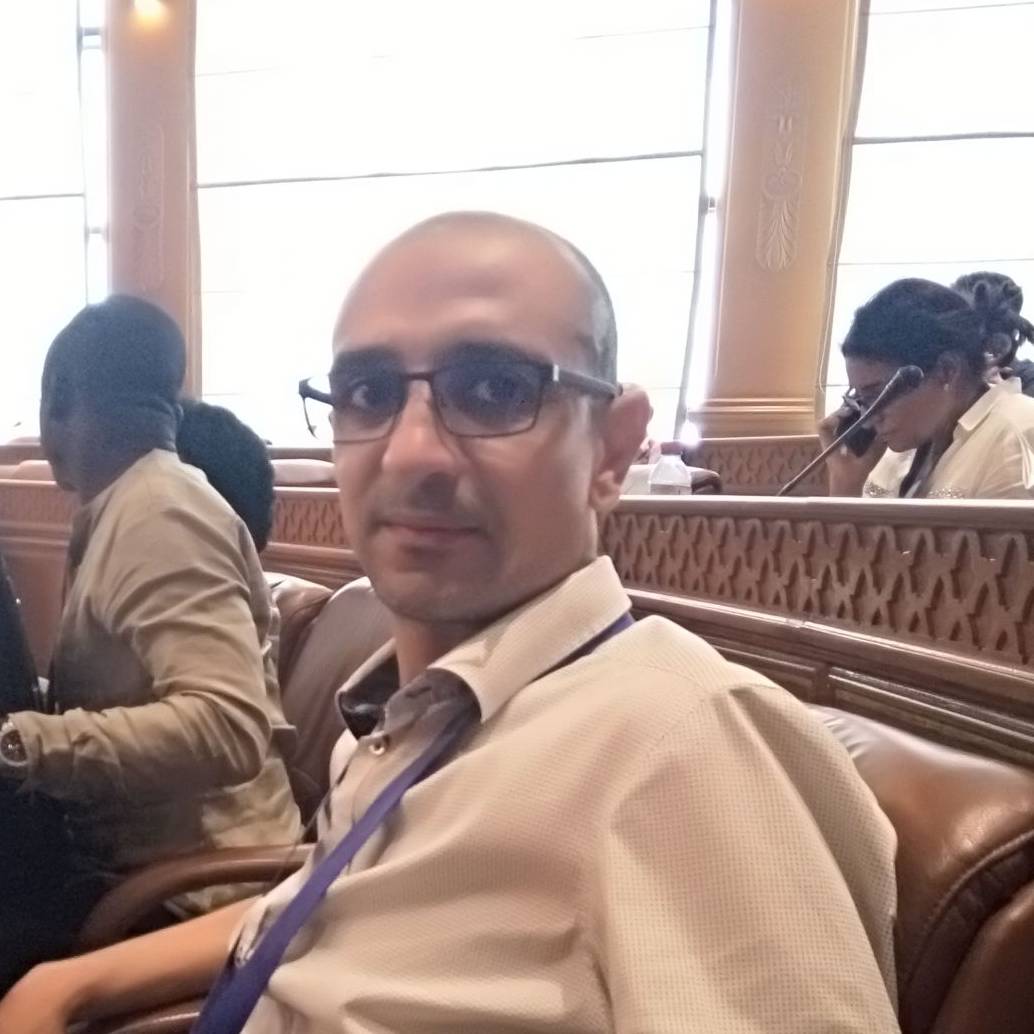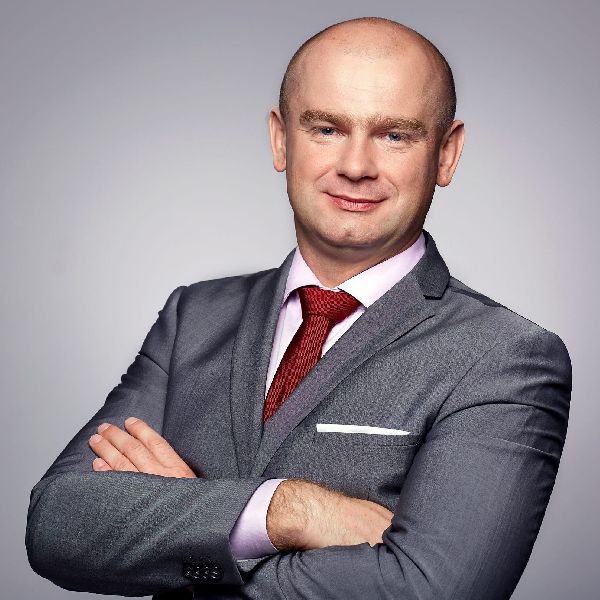
|
13.09.2022 | Teodor Burnar
|




|
Mr. Mohsen Souilah (WOLEP member, Tunisia): "Being a Lawyer necessarily implies a certain flexibility. We are dealing with a kind of intellectual gymnastics!"
Read here the first part of the WOLEP interview with Mr. Mohsen Souilah (WOLEP member, Tunisia)
WOLEP: You are also an accredited mediator, having received your diploma in Paris last summer. What prompted you to obtain it? Is mediation starting to take off in your country?
Mohsen Souilah: The mediation training is an initiative that was launched by the National Bar Association in Tunisia (ONAT) in 2017.
The National Bar Association of Tunisia has entered into an agreement with ICP-IFOMENE (Institut Catholique de Paris - Institut de Formation à la Médiation et à la Négociation) and the European Union-funded programme of support for the reform of justice (PARJ) to train lawyers on mediation. This partnership began with the organization of an information session on mediation for the benefit of a group of lawyers in July 2017.
Then, the partners managed to conclude an agreement so that this training would lead to a diploma. It is thus within this framework that I and some colleagues received an intense training in the matter (approximately two hundred hours) and thereafter we presented our memoirs for the obtaining of the diploma which was granted to us by the ICP-IFOMENE at Paris in June 2020. The defenses took place at a distance because of the COVID-19 pandemic.
Mediation as an amicable dispute resolution process has several virtues. It is considered a flexible and humanistic process not only when compared to state justice and arbitration, but also to other forms of amicable dispute resolution.
In Tunisia, when we look at the legal texts, be it the substantive law, the procedural codes or some sectoral texts, we realize that this process already exists in Tunisian law but under several names but it is not well regulated. The majority of the texts speak of mediation, conciliation, amicable settlement, etc.
We lawyers, and I personally, have sometimes entered into mediations and conciliations in cases and I didn't realize until later that it was mediation. This process is very beneficial to the litigants. It is about finding amicable solutions for clients without wasting time or money, and in complete confidentiality.
It is this flexibility of mind that I am aiming for. It requires that we should be aware of the changing role of the Lawyer today. In fact, and despite the objections that have been raised by some lawyers against mediation, this process should be embodied in the judicial and extra-judicial practice of lawyers because it is a global phenomenon that has triumphed over both geographical and ideological boundaries. Mediation is now recognized in the United States, Europe and elsewhere. It has proven itself.
That is why today the question of mediation is posed in all its extent in Tunisia. We have colleagues and even notaries who have been trained in mediation. In parallel, there is today a draft law (the lawyers in Tunisia have also prepared their own draft law) which has been prepared by a research unit at the level of the Ministry of Justice. So soon we will have a law on mediation that we have to adapt and harmonize with.
The lawyer is always the most familiar and the most suitable to work on these issues. He is the most adapted to practice this kind of intellectual gymnastics. You are going to be in front of two clients, so you have to be flexible, you have to have a sense of listening. A very good intensity of listening is a prerequisite and necessary condition to lead to a solution acceptable to the mediated parties. What is the client looking for? He doesn't care about the procedure that you will pursue, he only wants a permanent solution to his problem. And this is what a good mediation can offer him.
You are going to be in front of two clients, so you have to be flexible, you have to be a good listener, even a good listener. You have to help the parties to find a solution themselves. What is the Client looking for? He doesn't care about the procedure you will follow, he wants an acceptable and lasting solution.

WOLEP: We noticed that El Kef is a picturesque city. What made you decide to stay there and what are the main legal problems your Clients face on a daily basis?
Mohsen Souilah: As I told you at the beginning, I did my university studies in the capital Tunis. I had the opportunity to stay there, and that was actually my first decision. I spent almost the first three years of my practice as a lawyer, including the two years of internship, in Tunis. My return to Kef was a personal choice based on requirements of a mainly family nature.
In Tunis, I encountered some difficulties, as any beginner lawyer does. I spent almost three years in the capital, and I acquired a good experience. I did an internship in a business law firm where I worked on major cases.
I wanted to exploit in Kef this experience acquired in Tunis. So I wanted to get away from the classic status of the litigator always present with his robe in the corridors of the courtroom. The Lawyer must be a vector of change in his country, a vector of social peace, a vector of economic development.
Kef is a historical city, which is a region by essence agricultural and tourist (archaeological tourism, event tourism, cultural tourism, nature tourism, etc). We have mountains and beautiful places to visit here. It is a region that lies on the border with Algeria. It has known several events throughout history. The Roman Empire, the Phoenicians, the Numidians, the Ottoman Empire, are all civilizations that have left their traces in Kef.
I thought, therefore, to invest my skills in my region. Indeed, I contacted investors (Italians, Tunisians, Spaniards, French) to negotiate the possibility of launching some projects here. But what was still missing was the political and administrative will and stability that hit the country after the revolution... With this vision of things, I tried to promote the region. And I think that this is another role of the Lawyer who is a vector of economic development.
Most of the practices here are individual practices. So I thought of making a structure that can last in time. Why not think of a group of lawyers, a company, a structure that can last, that can work on a national scale, but also on an international scale. You should therefore develop your language skills, develop your computer equipment and all your means of communication by exploiting new technologies. In short, everything that should modernize your practice and make your work easier.
I wanted to exploit this experience acquired in Tunis in my region. So I wanted to get out of the classic status of the litigator. The Lawyer must be a vector of change, a vector of social peace and a vector of economic development

WOLEP: The COVID-19 pandemic forced us to reconsider our relationship with technology. How have you adapted? What new habits have you developed since 2020?
Mohsen Souilah: This issue of the evolution of the legal profession and its adaptation, influenced by the changes made nationally, but also internationally is still relevant. Indeed, with the COVID-19 pandemic, I was working much more behind my screen at home. A virtual space where I was doing my online meetings (seminars, workshops, work meetings, etc.). In fact, the courts were paralyzed and all cases were postponed indefinitely because of the general lockdown in the country. Therefore, alternatives to travelling to the office and being in the courtroom to work must be found.
I have always tried to save my time, because in parallel with my work as a lawyer, I am also active in the associative field and very interested in the protection and promotion of human rights. I have tried to write a few drafts on these issues.
In this time of crisis, I also got my diploma of mediator from the ICP- IFOMENE in Paris (June 2020).
I also sought to target clients and lawyers nationally and internationally. In fact, I joined WOLEP during the COVID-19 crisis.
That is why I said that the Lawyer should not be very attached to his traditional duties. One can, in fact, work remotely without having to travel to the site. One can work from one's office, or from any other location as long as new technology has made this possible.
So during the COVID-19 crisis I tried to fill my time, writing some articles and doing my work remotely. I also spent the time necessary to get my mediation diploma.
The consequences I have drawn from this are that the Lawyer should always adapt to the situation in which he lives, because opportunities can also be created in times of crisis. This is a well-known fact. Winston Churchill said that "a pessimist sees difficulty in every opportunity, an optimist sees opportunity in every difficulty".
So, with COVID-19, I have learned to be more flexible - to create new opportunities and turn loss into gain. The legal profession is evolving, and subsequently the Lawyer should evolve as well. Joining WOLEP is part of this same framework and coincides with my future vision of the profession. I am convinced that my profession is the profession of flexibility par excellence.
WOLEP: It's really a cliché: every lawyer has to be constantly learning and never rest on his laurels. How do you fight complacency in your profession?
Mohsen Souilah: We must always "update" our acquired knowledge. We must be aware of the new laws, the new jurisprudence and everything that is happening around the world in relation to our profession and even more. We have to be in sync with current events. You have to exploit new technologies and follow comparative experiences. The classic rule of "I'm here in my office, I open the door and wait for the clients to arrive" is very outdated.
We must always be creative, seize every possible opportunity, seek to develop our friendship and give another dimension to our work by collaborating with colleagues from all over the world

WOLEP: Have you worked on international legal projects so far? If so, what has been your experience? If not, what would you look for in such a collaboration?
Mohsen Souilah: I can tell you about my experience with the World Organisation Against Torture (OMCT). As we talked about at the beginning, after the Tunisian revolution, some organizations set up in Tunisia to defend human rights with Tunisian lawyers and civil society activists. I was selected by the World Organisation Against Torture to become their lawyer here in Kef to work on issues and cases of torture and ill-treatment. Whenever a citizen or any other foreign person is a victim or survivor of an act of torture or ill-treatment, I am therefore mandated to defend their rights in court or before the police.
With OMCT, a selection was made at the central level in Switzerland, in Geneva, and they sought to constitute a team of lawyers at the regional level, in Africa, called the African Judicial Intervention Group. This group aims at defending human rights, fighting torture and especially the impunity enjoyed by torturers on the African continent.
So, it is a regional project, all over Africa, and I was the only lawyer from Tunisia who was selected to be a member of this team. Our first meeting was in 2019 in Lome - Togo. We are about twenty lawyers of different nationalities (Ivory Coast, Chad, Togo, Burundi, Algeria...).
Our work consists of exposing cases of torture in each country and then working on major cases by drafting and submitting individual communications (petitions) to international human rights mechanisms.
With OMCT, a selection was made at the central level in Switzerland, in Geneva. It is a matter of choosing a team of lawyers at the regional level that was later called the "African Judicial Intervention Group". The purpose of this group is to defend human rights by fighting torture and impunity on the continent. I was the only lawyer from Tunisia who was selected
We all agreed that impunity reigns at the national level. So we decided to use the international human rights mechanisms to combat this scourge.
As a Judicial Intervention Group in Africa, we have made complaints, and in November 2021 we won a case of torture committed in Togo.
As a group, we are always in touch. We work remotely, we have a group on WhatsApp, and Gmail. We swap documents and work tools between us. So I can tell you that this is my first and only experience at the international level.
WOLEP: Is there a final thought you would like to share with the WOLEP community?
Mohsen Souilah: I had the honor and pleasure to be a member of WOLEP. I wish all the success to this young network, but also to my fellow network members all over the world. Actually, I feel very involved in relation to the objectives and vision of WOLEP.
For me, WOLEP is an international community of lawyers. I hope that everyone will participate positively in order to make this initiative succeed for the progress of the profession and for the progress of all of us. I also hope to participate positively in order to achieve the objectives of this community, which will allow all of us to promote the profession and to give a new modernist vision of the Lawyer of the XXIst century.
Are you a legal eagle with a passion for collaboration? Join forces with other legal professionals and elevate your practice to the next level. Don't wait, sign up now to WOLEP and connect with like-minded lawyers today. Register your account here.
#21st Century Lawyer #Mohsen Souilah #Tunisia #Africa #law in Africa #mediation



